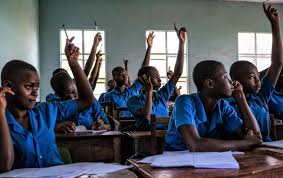Education in Nigeria is becoming increasingly expensive, raising concerns about its accessibility for many families. As costs rise, more people are questioning whether they can afford to keep up with the financial demands of schooling.

Over the past few years, tuition fees, textbooks, uniforms, and other educational expenses have seen significant increases. This is due in part to economic factors such as inflation and the devaluation of the Naira, which have affected the overall cost of living. Additionally, schools often face higher operational costs, which are then passed on to students and their families.
Private schools, in particular, are known for their high fees, which can be out of reach for many middle-class families. However, even public schools, which are traditionally more affordable, have started to see increases in fees and other associated costs. This trend is troubling for many parents who want to provide quality education for their children but find themselves struggling to meet these financial demands.
The increasing cost of education is not just a burden on parents. It also has broader implications for Nigeria’s future. Education is a key driver of economic growth and development, and when access to education is limited due to high costs, it can hinder the country’s progress. An educated population is essential for innovation, productivity, and competitiveness on a global scale.
Various stakeholders, including government agencies, educational institutions, and non-profit organizations, are aware of these challenges and are seeking solutions. Some advocate for increased government funding for education to alleviate the financial pressure on families. Others suggest the implementation of scholarship programs and financial aid to support students from low-income backgrounds.
There are also calls for schools to adopt more cost-effective measures in their operations. This could include the use of digital tools and resources to reduce the reliance on expensive textbooks and materials. Additionally, partnerships with private organizations could help subsidize the costs of education and make it more accessible to a broader population.
Despite these efforts, the question remains: Can Nigerian families keep up with the rising cost of education? For many, the answer is uncertain. The financial burden continues to grow, and without significant changes, many students may find themselves unable to pursue their educational goals.
The rising cost of education in Nigeria is a pressing issue that requires attention and action from all sectors of society. Ensuring that education remains accessible and affordable is crucial for the country’s development and the future of its young people. As discussions continue, it is essential to explore innovative solutions that can help ease the financial burden on families while maintaining the quality of education.



